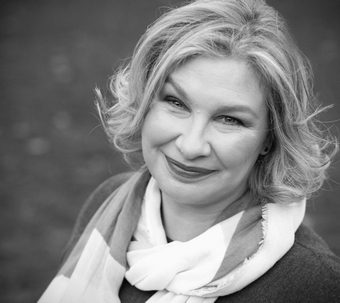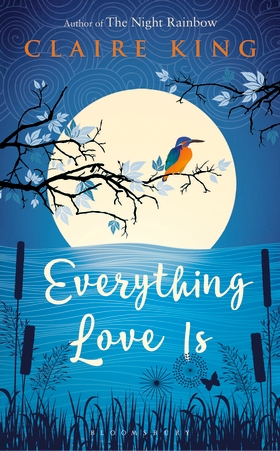Author Claire King delves into the complexities of writing about love, particularly when it comes to wrestling with reader and market expectations.

Everyone likes a good love story, right? Love is, after all, a fundamental part of the human experience in one shape or another.
Inspired by an invitation to discuss literary love at a book festival this month, and by some early reader responses to my latest novel, I’ve been looking into the stories we tell about love, what readers expect from them and how they are taken to market. So if you saw this book (below) in a bookshop, what kind of story would you think was waiting for you inside?
The cover art doesn't provide many clues. There’s a setting, possibly, but no characters. You might say it has something of a feminine feel to it. But the title is a giveaway…or is it?
I've already heard back from several readers who expected a story about love - which it is - but on reading were surprised to discover that it was not the kind of love story they’d expected. And yet many readers have gone on to say that the title, and the cover are a perfect fit for the book. So why the ambiguity?
Love in literature is packaged and marketed in distinctive ways – primarily to communicate to readers what they should expect from a book. Sometimes love is pushed front and centre, other times it is barely mentioned. Sometimes a love story fits into a genre – most often romance – and other times it is a feature of more character and issue-driven novels that are classed as Women’s Fiction, Contemporary Fiction or Literary Fiction depending on the author, how popular they are expected to be and how many prizes they are expected to win.
When you tell people you have written a love story - certainly as a female author - the first thing that often springs to mind is the commercial romance novel. From bodice rippers to contemporary romantic comedies, these are the love stories that answer the question, “How did you meet and fall in love?” Full of attraction, courtship and serendipity, every scene in these novels moves the couple towards a rewarding and optimistic ‘happily ever after’, despite numerous ups, downs and misunderstandings along the way. I would put books like Helen Fielding’s Bridget Jones Diary, Nick Hornby’s High Fidelity and Graeme Simsion’s The Rosie Project in this category too, although for me the continuum from romantic to contemporary fiction does begin to blur. Ultimately, for me a good romance novel is like a night in with your best friend: relaxing, funny and familiar. I recently heard someone describe these stories as a fictional equivalent of macaroni cheese – comforting, satisfying and pleasurable. It’s no surprise there is such a huge market for Romantic Fiction.

“But Everything Love Is is not that kind of love story,“ I tell people. ‘Then what kind of story is it?” I’m asked. It’s the kind of love story that people live every day when the first flames of desire have burned to embers. It’s the ‘what happens next’. It is the kind of story where relationships themselves do not take centre stage but play out against broader issues.
I pulled a few books from my shelves that fit this description: Jojo Moyes’ Me Before You, Audrey Niffenegger’s The Time Traveller’s Wife, and Erich Segal’s Love Story. What about Patricia Highsmith’s The Price of Salt, Love in the Time of Cholera by Gabriel García Márquez or Madeleine Miller’s A Song of Achilles. In these books much of the story lies deeper below the surface and more is asked of the reader. Love is not the ultimate goal, but the lens through which we see the strength of character of the players. Whilst all very different books, they are love stories that would give a book group something to get their teeth into. And they don’t necessarily provide the reader with an emotionally satisfying resolution.
A love story where a ‘happily ever after’ is not guaranteed is certainly a less comforting read than much romantic fiction but can nevertheless be just as rewarding in the end. Sometimes we might be in the mood for a good romance but other times it can be life-affirming to read about the kind of love we recognise in our own lives every day: The complex and sometimes conflicting emotions, the struggles and the joys, the passion and the compassion.
If the cover or the title of Everything Love Is led you to expect escapist romance, you will be surprised…but hopefully not disappointed. On the contrary, I hope you will find the love story on these pages just as uplifting.
Claire King’s first novel, The Night Rainbow, was a book club favourite, despite not being about rainbows. Her latest novel, Everything Love Is, was published this summer and can be found in good bookshops, and online (classified variously as Romance, Literary Fiction, Contemporary Fiction, Erotica and Chick Lit). Find Claire on Twitter or via her website.
Comments